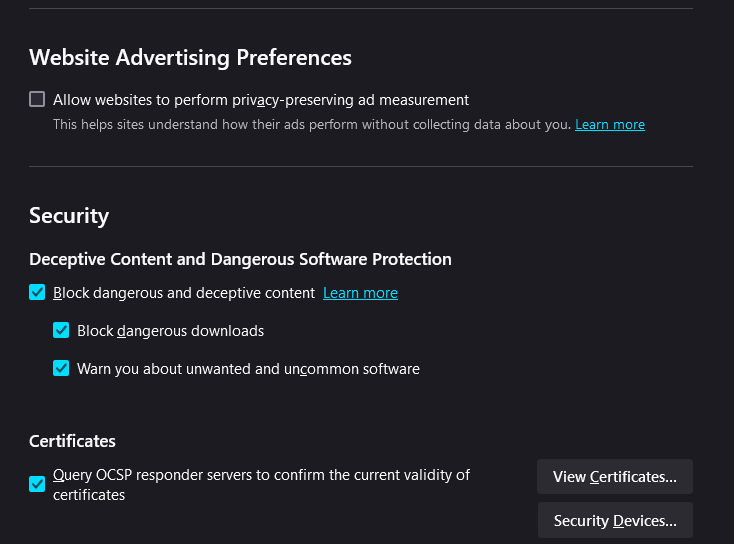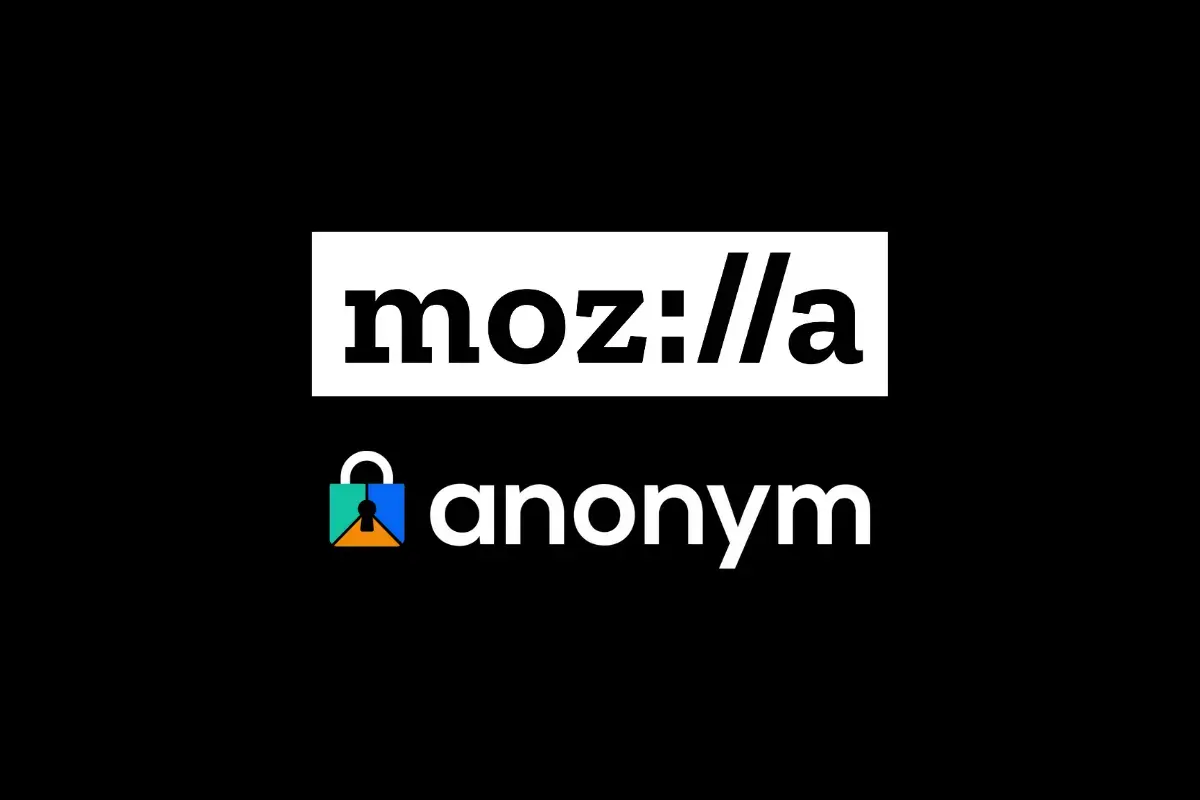
i don’t wanna see another ad on the web in my life, so i’ll just keep on using ublock.

Yeah pretty much. The privacy invasion of ad companies is terrible for sure, but the whole seeing ads all over the damn place in the first place is also annoying enough that even if they were somehow completely tracker-free I would still block them.

I said this in the other thread but it bears repeating.
Data-driven marketing and privacy are diametrically opposed.
If I want to advertise to pregnant teenagers looking at bus tickets, even if I have something helpful to say, that is a huge privacy violation to those people. And even if you say, I can’t see who’s being advertised to, I can see who clicks on the ads, even accidentally. Now I know a whole lot about them

This sounds a whole lot like privacy sandbox.
You know, Google Topics.
The thing nobody wanted.And honestly, reading through the article here, I don’t see many ways that it’ll be much better. If advertisements are matched on your local machine, then data is still being amalgamated somewhere. This is similar to Google Topics and Microsoft Recall, two things people complain about. For good reason.
The online advertising industry is undergoing a significant transformation. With growing consumer concerns and increasing scrutiny from regulators, it’s evident that current data practices are excessive and unsustainable.
It’s strange that Mozilla, a company that constantly positions itself as the ethical alternative to big tech, is saying “companies are being mandated out of unethical advertising.”
Secure Environment: Data sets are matched in a highly secure environment
Without any further information, this means so very little. Is it done locally? On their servers? Who knows.
By combining Mozilla’s scale and trusted reputation with Anonym’s cutting-edge technology, we can enhance user privacy and advertising effectiveness, leveling the playing field for all stakeholders.
When advertising is the business, your attention is the product. Maybe I’m being too unkind to Mozilla here, but it’s their press release and they can be as specific as they choose.
Anonym was founded with two core beliefs: First, that people have a fundamental right to privacy in online interactions…
This is the sort of meaningless fluff that you see at the front of every privacy policy, including that of the most invasive companies.
… and second, that digital advertising is critical for the sustainability of free content, services and experiences.
That’s the only way to offer free services?! What about donation-based models? Maybe Mozilla could have set up something like what Brave has, except not based around a sketchy cryptocurrency.
In fact, GNU Taler exists for this very purpose.
Anonym was founded in 2022 by former Meta executives
Meta. The company known for loving user privacy.
I was hoping Mozilla would finally shut up about putting AI into everything, but in retrospect, maybe they should go back to that.
I’m reading through the Anonymco privacy policy. Some standouts:
We collect… IP address, social media user names, passwords and other security information,
Passwords?!
…your browsing and click history, including information about how you navigate within our Site and Services…
…We collect and verify resumes, employment eligibility, education, and employment history from job applicants. This includes information about your skills and qualifications for the position…
Okay, great, they know how employable you are
We may disclose Personal Information and any other information about you to government or law enforcement officials or private parties… to prevent or stop any illegal, unethical, or legally actionable activity…
They are leaving the door open to disclose your data to private mercenaries to prevent… Pre-crime, I think.
We use Google Analytics on the Site and Services to analyze how users use the Site and Services, and to provide advertisements to you on other websites.
THEY USE GOOGLE ON YOUR DATA.
This really sounds like Mozilla snapped up the first company with the right buzzwords that they could find, rather than looking for the best one. It sounds like a repeat of the OneRep privacy disaster, when they partnered with a corporation that sold people’s data and used their ownership of it to basically demand ransom payments for its removal.

It’s so much worse than I thought, and I already hated it.

Is it done locally? On their servers? Who knows.
You know it’s on their servers. 🙂 Otherwise they would be beating so much around the bush.

That’s the only way to offer free services?! What about donation-based models? Maybe Mozilla could have set up something like what Brave has, except not based around a sketchy cryptocurrency.
Please correct me if I’m mistaken, but I thought Brave only gave donatable tokens to users as a reward for watching ads… ads which Brave curated for the user based on their activity. It’s just targeted ad revenue with extra steps.
At first blush, it seems to me that both Brave and Anonym want to be the middleman for targeted advertising. What am I missing?

I think you can add your own money into Brave to tip people extra.
And the biggest difference is…
- Brave sold itself on this as a feature since day one
- Brave had the audience who wanted this
- The Brave software is a known factor; what’s going to happen to Firefox is unknown.

Stolen from r*ddit, this is what the option looks like in the config (already in beta/dev channel)

also stolen from r*ddit: “Anonym was founded in 2022 by former Meta executives Brad Smallwood and Graham Mudd.”

Librewolf is the new Firefox
Change my mind

I switched a few months back after using Firefox /w ArkenWolf for years.
It’s great having an out the box product I don’t have to immediately tweak settings or install 3rd party tweaks & plugins to have a decent experience with.

I wonder if the process is open source or we just take their word that it’s privacy preserving. Anyway, privacy is not the only problem with online advertising, so I’m not going to give up adblocking any time soon.

It’s just an advertising company that knows to throw in some buzzwords.

Advertising can’t be privacy preserving. What gives advertisement value is the fact that it’s targeted.

Advertising signs next to a road are both targeted and privacy respecting, just like radio/tv.

They are worth nothing compared to targeted ads online that know your soul.

That’s a really good point.
However the company that Mozilla just purchased was about targeted advertisement campaigns… “data-driven advertisements”

Yeah I’m aware, I just reacted to the general statement about advertising that was untrue imho.

That’s not what digital advertising is though.

The person I reacted to didn’t talk about only digital advertising

Contextual ads can be privacy preserving. As in Netflix ads in a entertainment page. The problem is targeting the ad on people, and not on content.

Anonym was founded in 2022 by former Meta executives […]. The company was backed by [various venture capital corporations and multiple] strategic individual investors.

For maximum humor, run the bullshit.js bookmarklet.

Is there a way for one to use this on android FF?
Edit:
Found one. Bookmarking the following(got it from view-source:) worked:
javascript:(function(){var d=document,s=d.createElement('script');s.crossOrigin='anonymous';s.src='https://unpkg.com/@mourner/bullshit@1.3.0/bullshit.js';d.body.appendChild(s);}())Websites that helped:
https://paul.kinlan.me/use-bookmarklets-on-chrome-on-android/
https://stackoverflow.com/questions/63614702/bookmarklet-functionality-missing-in-firefox-android#63620174
Thanks for sharing the link
Yes, but it’s not very easy. I used ViolentMonkey with this userscript.
Edit: your method is really cool too

Great
I love how Mozilla seems to be trying so hard to kill itself. You don’t see Google marketing Chrome as the browser that serves you ads and sends back telemetry.

Not the first time Mozilla has done something like this. In 2017, Mozilla stealthily installed a tracking and advertising plugin called Cliqz on a small number of German user’s computers, which provided users with targeted ads, with very similar language to what Mozilla is currently trying to incorporate with Anonym.

Fun fact: Cliqz also developed a search engine, which later got purchased by Brave and renamed Brave Search.

for anybody that wants to disable it, go to the settings and search for “Allow websites to perform privacy-preserving ad measurement”
(or through the
dom.private-attribution.submission.enabledflag inabout:config)https://support.mozilla.org/en-US/kb/privacy-preserving-attribution

This is why i am not giving another penny to Mozilla ever again

JS compatible browsers that actually respect your privacy:
Mozilla is not your friend, and they’re not saving the web from Google

You forgot Librewolf and Waterfox


All that being said, if you don’t want to tweak Firefox with Arkenfox user.js (or tweak it yourself), and you can live with the fact that Librewolf makes these outgoing connections [to update uBlock Origin and its lists], Librewolf is currently one of the most privacy respecting browsers out there.
It’s in my “good enough for me” list because the alternative is dealing with Firefox myself

Yeah, no some guys blog stating his personal opinion is not evidence. We are just talking about things that are better than Firefox anyhow

It would be more useful if you had something more substantiative than “it’s a blog so it’s wrong”. Is there actually something in the article you take issue with?

They blog doesn’t give much of a reason of why it isn’t private. It feels more like “I don’t use this so you shouldn’t” mentality

How is Librewolf and Waterfox connecting to Amazon Cloudfront and a bunch of other domains on first boot and Waterfox having a sketchy privacy policy (article’s is out of date but the new one isn’t much better) a subjective opinion?

For one, Librewolf clearly states what it does on startup. It has to update ublock origin and other threat lists. That is better than having out of date protections is it not? Just because it connects doesn’t mean it sends much data. Things need to be hosted somewhere.
For Waterfox the argument is less bad but Waterfox is about on par with a lot of other stuff. It isn’t going to be crazy good and it is no where near as good as Librewolf but it is better than Firefox and many others. I would rate it as half bad.
Librewolf is the arguably best privacy browser. You haven’t named anything better. It breaks sites occasionally but it does protect privacy and security and scores well on fingerprinting resistance.

Personally I disagree with the conclusions stated by the blog post, but I can respect the reasoning for getting there, and I can draw my own conclusions from it myself.

The biggest problem with the alternative browsers I wanted to use is, that they are not managed by my distribution (repository).

What distribution are you using? Every distro I’ve tried, even the more obscure ones (alpine, void, openbsd), package most of the webkit/webengine browsers.

EndevourOS, based on Archlinux. I was looking into forks of Firefox. For a webbrowser, it should be in the repository (not AUR) and it should be as quickly updated as Firefox itself. None of the forks I looked into match this criteria.

Why use Arch (or something Arch based) then? I don’t like the AUR either (or systemd, or the bleeding edge (buggy) packages), which is why I like Void Linux.

I wouldn’t call Arch bleeding edge. There are 2 stages before packages get updated in the repository for everyone (maybe besides trusted projects? which get immadiate update). I wait since almost 3 weeks until they update RetroArch. :D But that’s just terminology and not really important.
I personally want the newest stuff and being updated all the time. Systemd isn’t a problem for me, it’s fine to me. The packages from Arch repository aren’t buggy for me, so no complains there. You can always find reasons why to switch to another distribution, but that often is not the entire truth. There is often so much more to consider. My previous point is about the software I was looking into not packaged by the distribution of my choice. So many people say packages should come upstream, like in Flatpak and distributions should not package anymore. I hardly disagree here. But I digress… again…
I’m not here to switch my distribution, but think about switching to another Firefox base. I think Firefox is a great browser and want to keep using it, but have a few disagreements with Mozilla lately. That’s why I was looking into an alternative fork. I will stay on EndeavourOS slash Archlinux… at the moment at least.
Edit: Dang it, I did it again. Why do I need to write entire blog posts as a forum reply?


